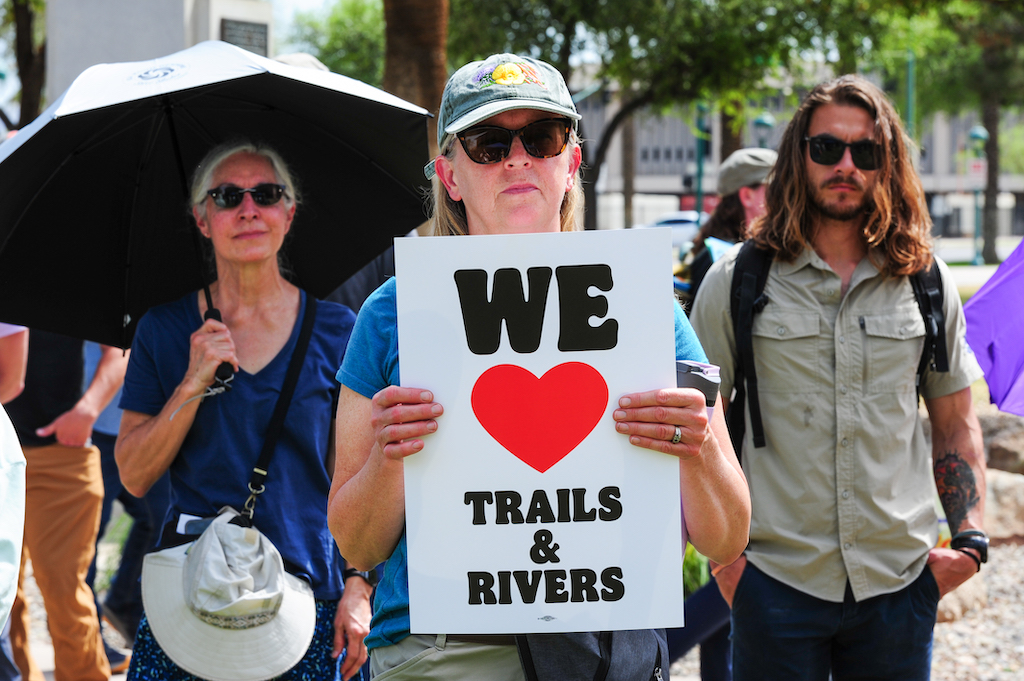PHOENIX — A renewed push to shift oversight of public lands from the federal government to state and private entities is intensifying political and legal battles across the West, with Arizona at the center of the debate.
Dozens of protesters rallied at the Arizona Capitol Thursday, calling on lawmakers to reject proposals they say threaten environmentally and culturally significant landscapes. The demonstration highlighted growing opposition to recent state and federal efforts to reduce protections and expand development on public lands.
Federal land agencies — already grappling with budget shortfalls and staff cuts — have scaled back services, closed visitor centers and paused key environmental programs. In Arizona, these cuts have led to canceled trail maintenance, shortened park hours and the suspension of youth education initiatives.
Related → Phoenix protest demands justice for Emily Pike, action on missing Indigenous crisis
The changes follow a series of federal policy shifts aimed at rolling back environmental regulations and accelerating approval for extractive industries, including mining. Critics say the moves jeopardize fragile ecosystems and undercut decades of bipartisan conservation work.
Several Western states, including Arizona, are now reviving efforts to assert greater control over federally managed lands. While the U.S. Supreme Court last year declined to hear a Utah case seeking ownership of federal territory, similar legislation has gained traction in statehouses across the region.
In Arizona, lawmakers are considering a bill that would bar federal land acquisitions without state approval and a resolution urging the state be exempt from the Antiquities Act — a century-old law that allows presidents to designate national monuments without congressional approval.
That law was used in 2023 to establish the Baaj Nwaavjo I’tah Kukveni – Ancestral Footprints of the Grand Canyon National Monument, a move hailed by tribal leaders and environmentalists as a safeguard for sacred lands and groundwater resources. Opponents, however, continue to challenge the designation in court and on the campaign trail.
Beyond conservation concerns, opponents of the federal rollback point to the economic impact. Public lands generate billions in tourism revenue for Arizona and support thousands of jobs in hospitality, outdoor recreation and retail. Industry leaders warn that reducing federal oversight could disrupt rural economies that rely heavily on those sectors.
In response to dwindling federal support, nonprofit groups and volunteer organizations have attempted to fill the gap — often with limited resources. Several community-led conservation initiatives have been suspended due to hiring freezes and funding shortfalls.
Organizers of Thursday’s rally cast the issue as a broader referendum on national priorities. While the push for state control has largely come from Republican-led legislatures, public lands advocacy has historically drawn bipartisan backing. Activists are urging residents to contact lawmakers, support conservation programs and oppose what they describe as a coordinated effort to erode public land protections.
With multiple bills moving through the Arizona Legislature and key federal regulations in flux, the state has become a key battleground in a wider fight over land use, environmental policy and the role of government. Conservation advocates warn the consequences could be lasting.
© 2025, Eduardo Barraza. All rights reserved.





